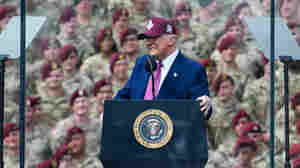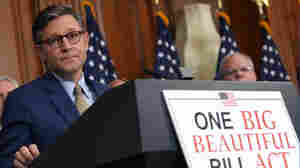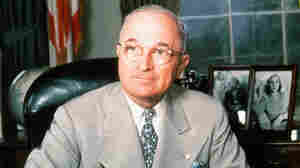

The Indicator from Planet Money
From NPR
A bite-sized show about big ideas. From the people who make Planet Money, The Indicator helps you make sense of what's happening in today's economy. It's a quick hit of insight into money, work, and business. Monday through Friday, in 10 minutes or less.
Most Recent Episodes
Workers on scaffolding lay blocks on one of the larger buildings at a development site where various residential units and commercial sites are under construction. Keith Srakocic/AP hide caption
Back in 1918, a Chaplin film featuring the Liberty Bond. Associated Press hide caption
Trump's parade, FEMA phase out, and Warner Bros. Discovery divorces ... itself?
Trump's parade, FEMA phase out, and Warner Bros. Discovery divorces ... itself?
STEFANI REYNOLDS/AFP via Getty Images Stefani Reynolds/AFP via Getty Images hide caption
Several proposed taxes in the One Big Beautiful Bill Act would shift how money flows from the U.S. to other countries Kevin Dietsch via Getty Images hide caption
When Harry Truman became U.S. President in 1948, he was a proponent for government-sponsored health insurance for all. AP Newsroom hide caption









